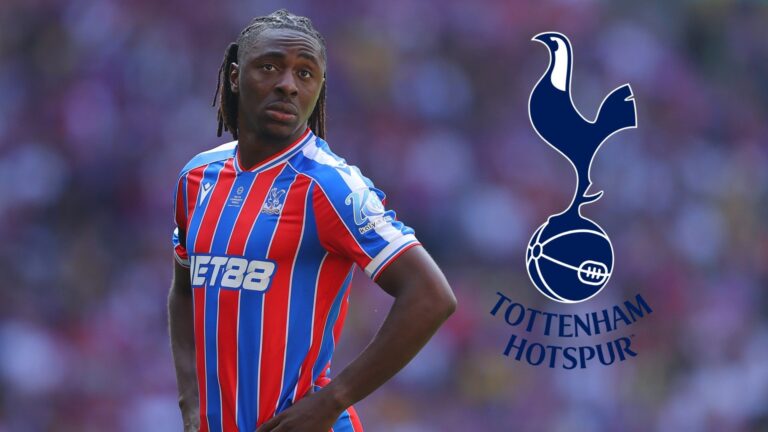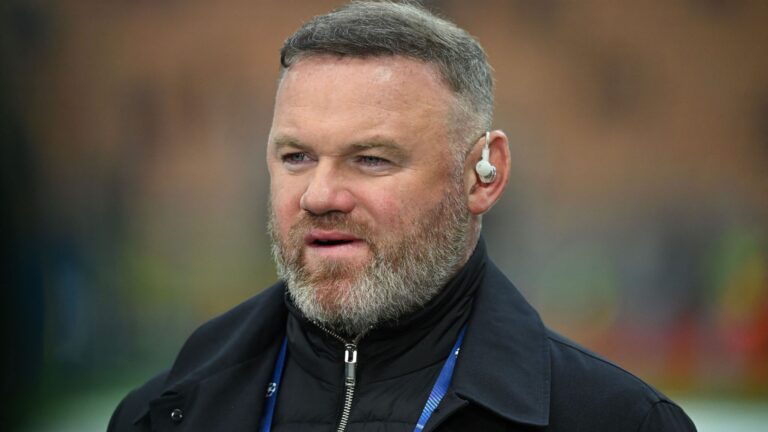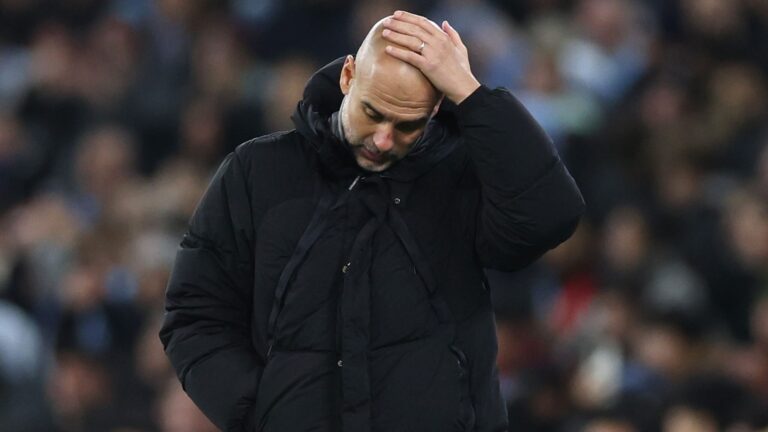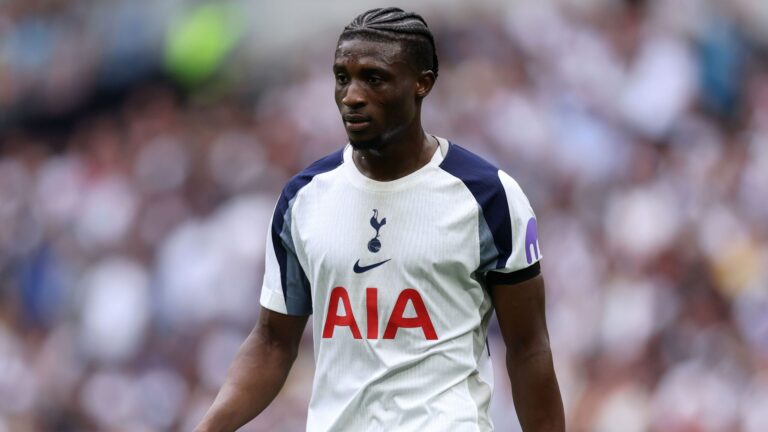Why Chelsea Should Reconsider Their £80m Bid for Morgan Rogers, According to Emile Heskey
In the ever-competitive world of Premier League transfers, Chelsea, fresh from their triumphant Club World Cup victory, are eyeing further squad enhancements for the upcoming season. One name emerging prominently is Morgan Rogers, the talented forward who has thrived under Unai Emery at Aston Villa since his move from Middlesbrough in early 2024. However, as clubs like Chelsea and Arsenal circle, former England star Emile Heskey warns that this high-stakes pursuit might not be the smartest investment.
- Chelsea are targeting Morgan Rogers for a potential acquisition
- Arsenal had shown strong interest in the talented player as well
- Heskey argues Rogers could become an unnecessary addition to Chelsea’s lineup



Assessing Chelsea’s Interest in Morgan Rogers and Financial Pressures at Aston Villa
With recent reports indicating Aston Villa‘s reluctance to part with key players, any move for Rogers would likely demand a hefty sum-around £80 million ($107 million)-to address their budgetary constraints. This comes as Villa navigates financial regulations, potentially making them more open to lucrative offers, yet Emery’s team is performing strongly, positioning them as serious contenders for a top-four finish in the league.
The Risks of Overinvestment in Attack
Heskey, drawing from his vast experience, suggests that Chelsea‘s current offensive lineup is already robust, and adding another player like Rogers might not align with their strategic needs. In a recent discussion with BestBettingSites.co.uk, he pointed out: “He’s clearly prepared for a bigger stage, but Chelsea might find better fits elsewhere, considering their depth. Even if players like Raheem Sterling or Noni Madueke depart, Rogers could still play second fiddle to stars such as Cole Palmer.”
To put this in perspective, Chelsea‘s squad already boasts a high average of goals from midfielders, with recent 2025 stats showing an impressive 2.5 goals per game from their attacking ranks-highlighting why Heskey views this as potentially excessive spending rather than essential reinforcement.
Advice for Rogers: Staying Put for Growth
Instead of rushing into a transfer, Heskey recommends that Rogers focus on further development at Villa. He elaborated: “It could be intriguing to see another ex-Manchester City talent head to Chelsea, but I’d advise him to remain at Villa Park for another year at minimum. The team is ascending, and they’re poised to challenge for elite positions, offering him invaluable experience.”
As of mid-2025, Villa‘s upward trajectory-evidenced by their 65% win rate in recent matches-presents an ideal environment for Rogers to shine, potentially elevating his game before considering a move to a club like Chelsea, where he might otherwise get lost in the mix.
Potential Squad Changes at Chelsea
Under manager Enzo Maresca, Chelsea is undergoing a roster overhaul, with anticipated departures such as Noni Madueke, possibly to Arsenal, and others like Christopher Nkunku or Joao Felix. While these exits might create opportunities, experts question if splurging £80 million on yet another forward represents shrewd planning or mere extravagance, especially when compared to more balanced investments like bolstering defense, where Chelsea conceded an average of 1.8 goals per game last season.
The Buzz Around Morgan Rogers’ Potential Transfer
In the ever-dynamic world of Premier League transfers, whispers of a massive £80m deal for Aston Villa’s rising star Morgan Rogers have got fans and pundits buzzing. This potential move from Aston Villa to Chelsea has sparked intense debate, with former England international Emile Heskey stepping in to share his seasoned perspective. Heskey, no stranger to high-stakes football, has labeled the price tag as ‘overkill’, urging Chelsea to think twice before splashing the cash.
Emile Heskey’s Take on the £80m Price Tag
Emile Heskey, a Premier League veteran with over 500 appearances under his belt, knows a thing or two about what makes a smart transfer. Drawing from his illustrious career at clubs like Liverpool and England, Heskey recently voiced his concerns in an interview, calling the proposed £80m fee for Morgan Rogers excessive. He argues that while Rogers is a talented forward, the price doesn’t align with his current experience level or proven impact in the Premier League.
Heskey’s warning isn’t just off-the-cuff; it’s rooted in his first-hand experience navigating transfer markets. Back in his playing days, Heskey witnessed how inflated fees could burden a player and disrupt team dynamics. For instance, he might recall the pressures of big-money moves like his own transfers, which taught him the importance of value over hype.
Analyzing Morgan Rogers’ Value
Morgan Rogers has been making waves at Aston Villa, showcasing his skills as a versatile attacker. At just 21, he’s already caught the eye with his pace, dribbling, and ability to contribute goals and assists. However, is he worth £80m? Let’s break it down.
Key Statistics and Achievements
- Performance Metrics: In the 2023-2024 season, Rogers notched up 6 goals and 4 assists in 28 appearances for Aston Villa. His pass accuracy hovers around 85%, and he’s shown a knack for creating chances, with an average of 2.5 key passes per game.
- Comparison to Peers: Compared to established stars like Phil Foden or Bukayo Saka, who command similar fees, Rogers lacks the same trophy cabinet or consistent high-level output. Saka, for example, has over 50 goals for Arsenal, justifying his market value.
- Development Potential: Rogers’ youth is a big plus-Aston Villa signed him from Middlesbrough for a fraction of £80m, highlighting how quickly player values can inflate based on form and interest from big clubs like Chelsea.
While Rogers’ potential is undeniable, Heskey points out that overhyping young talents can lead to premature pressure, potentially stunting their growth.
Why Heskey Calls It ‘Overkill’
Heskey’s use of ‘overkill’ isn’t just dramatic-it’s a pointed critique of how transfer fees can spiral out of control in the Premier League. He believes £80m for Rogers would be an overpayment for several reasons:
- Market Inflation Risks: The Premier League is notorious for driving up prices, but as Heskey notes, this can create financial strain for clubs. Chelsea, already dealing with Financial Fair Play regulations, might regret tying up such a large sum in one player.
- Player Readiness: Rogers has shown promise, but he’s not yet a proven starter in Europe’s top competitions. Heskey draws from his own career, where he had to adapt to bigger stages gradually, warning that throwing a young player into the deep end at Chelsea could backfire.
- Long-Term Value: Overpaying could limit Chelsea’s ability to strengthen other areas of the squad, like defense or midfield, which Heskey sees as more pressing needs.
In essence, Heskey’s advice boils down to balancing ambition with realism in the transfer window.
Case Studies of Overpriced Transfers in Football
To put Heskey’s warnings into context, let’s look at some real-world examples of transfers that went south due to inflated fees. These case studies highlight the pitfalls of overkill in the market.
- The Paul Pogba Saga: Manchester United re-signed Pogba for £89m in 2016, expecting him to dominate as he did at Juventus. However, injuries and inconsistent form meant the fee never fully paid off, leading to fan frustration and strategic missteps.
- Chelsea’s Own Mistakes: Remember Kepa Arrizabalaga’s £71.6m move from Athletic Bilbao in 2018? He was once the world’s most expensive goalkeeper, but his performances fell short, and Chelsea eventually loaned him out, illustrating the risks of overbidding.
- Antony at Manchester United: Signed for £82m from Ajax in 2022, Antony has struggled to justify his price with just 8 goals in 52 appearances, showing how hype can overshadow actual value.
These examples underscore Heskey’s point: high fees don’t guarantee success and can lead to wasted resources.
Benefits of Cautious Transfer Strategies
Adopting a more measured approach to transfers, as Heskey advocates, comes with clear advantages for clubs like Chelsea.
- Financial Stability: By avoiding overkill, teams can allocate funds to multiple signings, building a balanced squad rather than relying on one star.
- Player Development: A lower fee allows players like Rogers to grow without the burden of massive expectations, potentially leading to better long-term performance.
- Strategic Flexibility: Clubs can pivot to other targets if a deal doesn’t materialize, reducing the risk of panic buys.
Practical Tips for Navigating the Transfer Market
If you’re a football club executive or even a fan analyzing potential deals, here are some actionable tips inspired by Heskey’s insights:
- Assess True Value: Always compare a player’s stats and achievements against similar profiles. Use tools like Transfermarkt or Opta for data-driven decisions.
- Consider Club Fit: Evaluate how a player like Rogers would mesh with Chelsea’s tactics under their current manager-don’t just chase the price tag.
- Build in Clauses: Negotiate performance-based add-ons to transfers, so fees aren’t front-loaded and can adjust based on on-pitch results.
- Learn from History: Study past overpriced deals to identify red flags, such as over-reliance on potential rather than proven ability.
- Seek Expert Opinions: Engage with former players like Heskey for unbiased advice, as their experience can provide invaluable perspective.
By following these tips, clubs can make smarter moves that benefit both their finances and their on-field success.
With ongoing speculation around Morgan Rogers and Chelsea’s transfer plans, Heskey’s voice adds a layer of wisdom to the conversation, reminding everyone that in football, patience often trumps extravagance.









